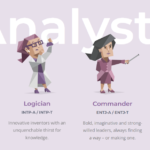With the assistance of Generative AI, ChatGPT and Google Bard have become even more powerful. Through training on existing text, audio, or visual content, Generative AI technology can create new content in response to commands.
Although there are countless arguments about how Generative AI technology will eliminate human jobs, a report from investment bank Goldman Sachs suggests that up to 300 million full-time jobs worldwide may be impacted. However, “impact” does not necessarily mean that job opportunities will disappear entirely. The report also notes that history tells us that when automation replaces certain jobs, new jobs are often created. Moreover, about 63% of current jobs can be assisted by AI, such as in customer service departments.

The Wall Street Journal reported that some professions, such as accountants, writers, mathematicians, public relations experts, and blockchain engineers, can use Generative AI technology, such as ChatGPT, to save time and handle about 50% of their tedious tasks.
With the rise of new technology, Generative AI has also created some new roles that are waiting to be filled by the right people. Here are five examples:
Prompt Engineer
Generative AI uses natural language processing (NLP), which is a machine learning technology that allows computers to interpret, manipulate, and understand human language.
The term “Prompt” in the field of artificial intelligence refers to the text of the question or request that you input. Using ChatGPT as an example, to simplify for the engineers, it means understanding how to ask the right questions to ChatGPT to achieve the best desired outcome. During the questioning process, the prompt engineer inputs effective strings to achieve the most accurate results while also training the AI.
The techniques for communicating with different generative AI architectures may not be the same. The same question format may yield the desired results in ChatGPT, but not necessarily in Bard. According to OpenAI CEO, Sam Altman, writing prompts “is a highly valuable skill with great added value.”
AI Trainer
When a company decides to let a generative AI robot interact with the outside world, the system must learn how to respond. This is the heavy responsibility of the AI trainer.
For example, an insurance company’s AI trainer recruitment message stated that the position does not require direct communication with customers, but rather assistance from the sidelines after the AI system answers the phone. Therefore, the AI trainer’s role is to help the system become more perfect. When the AI robot’s response is not human-like enough or lacks a personal touch, the AI trainer must step in.
AI Auditor
The AI content production cannot simply be cool and interesting. AI also needs to be correct and avoid bias. Big tech companies have also admitted that AI can still create biased and malicious comments and results. Business leaders can never eliminate AI bias. The MIT Sloan Management Review pointed out that companies should focus on “remediation”, and the role of AI auditors is to eliminate bias as much as possible.
In fact, the New York City Hall has already passed a bill requiring all technology companies that develop software to establish AI auditors to avoid discrimination against job applicants. More and more companies are using AI technology for recruitment.

AI Ethics Expert
Microsoft’s Bing GPT-4 defines AI Ethics Expert as “responsible for ensuring that AI acts in a safe and ethical manner.” Indeed.com is also looking for AI Ethics Experts, and the job description states that “for us, AI Ethics Experts help everyone find a job by reducing bias in algorithms and enhancing fairness.”
Google told Personal Computer Magazine that “businesses now need AI Ethics Experts because everyone wants to ensure that their generative AI is responsible and ethical.” Human resources websites show that AI Ethics Experts earn an annual salary of approximately $160,000.
Machine Management
Generative AI cannot simply accept and deliver messages on its own, its greater application lies in integrating and collaborating with actual workplace tools and equipment. This is the job of Machine Management, which ensures the integration of AI with workplace and production tools and ensures the smooth operation of hardware and systems.
This type of work often requires a background in computer science, and having practical experience in collaborating with AI is even better. The compensation range listed on job search websites is quite large, with an annual salary ranging from $109,000 to $251,000.
At first glance, some of the job responsibilities mentioned above may seem to overlap and can be combined. For example, AI Auditors and AI Ethics Experts both seem to avoid AI’s malicious remarks. Indeed, this is the case. Generative AI is still in its infancy, with infinite possibilities, but it also needs regulation.
Fei-Fei Li, Director of the Stanford Institute for Human-Centered Artificial Intelligence, pointed out in an interview with CommonWealth Magazine that the business competition for AI has already reached a white-hot stage, but there is no follow-up protection from society. There are no regulatory laws, and even the supervisory agencies are caught off guard. Business companies tend to self-regulate: you trust me. However, some people believe that commercial institutions are not trustworthy and that more powerful authorities, like the government, are needed to enforce regulations.








